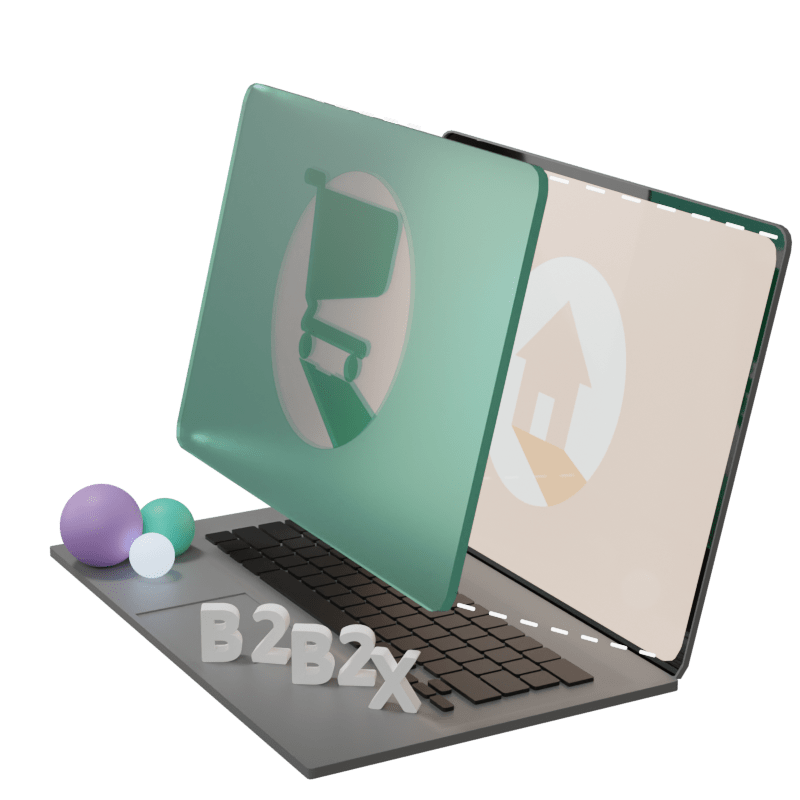B2B ecommerce and customer service
Parttrap ONE B2B ecommerce platform
Powerful features for your customers and staff
Powerful features for your customers & staff
A complete platform for your online business. Powerful product search, rich product presentation and efficient order entry simplifies for your customers to make business with you. Online customer service available 24/7 with order status, invoices, pricing and stock availability..
B2B ecommerce highlights in i Parttrap® ONE
- Honors business logic and settings in your ERP
- Customer specific assortment and pricing
- Supports complex products and aftermarket sales
- Multiple markets, brands, languages and currencies
- B2B, B2C, B2B2X and homepage in one platform
- Order approval process, punch-out and roundtrips
- Claims, returns and quotation management

Seamless ERP Integration
Experience seamless ERP integration that ensures up-to-date customer data and minimizes maintenance effort. Essential customer data, product information, and settings from your ERP system seamlessly transition to Parttrap® ONE, eliminating the need for additional work. Streamline operations effortlessly with our out-of-the-box ERP integration.
Boost Online Success
Enhance decision-making speed by bringing info, knowledge, and tools closer to customers. Elevate conversions with real-time ERP data, rich content, and top-notch user experiences. Comprehensive support for intricate products, aftermarket sales, and value-added services enhances your ecommerce solution, driving more business and cost efficiency. Amplify digital sales, enable complex product selling via configurators, and offer aftermarket support for substantial growth.


Enhance sales workflow
Empower sales processes and bolster partners' engagement. Parttrap® ONE introduces extended business models for channels, advanced sales features, and guided product selection. Effortless order entry and enhanced customer service elevate relationships and attract fresh customers. Streamlined customer data access, round-the-clock purchasing, effective product data management, and comprehensive sales resources amplify efficiency. Prioritize quality with manual resources while ensuring customer convenience and business automation. Elevate your sales process efficiency with Parttrap® ONE.
Unleash your growth
Elevate your expansion with Parttrap® ONE. Our scalable platform accommodates growing organizations effortlessly. A single Parttrap® ONE instance efficiently manages multiple sales companies, markets, brands, languages, and currencies. Seamlessly add new markets with centralized control, while preserving the adaptability for market-specific needs like product assortment, payment methods, shipping choices, and more. Experience boundless growth with Parttrap® ONE.


Enhanced customer service
Deliver exceptional service with Parttrap® ONE. From order tracking and history to invoices, pricing, and product details, empower your customers with 24/7 access. Boost customer satisfaction and alleviate manual service desk demands. Integrate a chatbox for real-time assistance, streamline order placement, manage claims and returns, offer Q&A, and easily handle user accounts. Elevate customer support, anytime, anywhere.
Flexible Payments and Shipping
Customize as you need. Parttrap® ONE adapts payment options based on customer type. Whether a registered ERP user or new visitor, choose from invoices or various card options. Estimate shipping costs through FedEx, UPS, or other forwarders, or calculate based on ERP settings. Tailor your checkout experience with Parttrap® ONE.


Unified web solution
Create your ecommerce site for both B2C and B2B alongside your corporate website using Parttrap® ONE. One platform, multiple functionalities. Whether you're catering to individual shoppers or business clients, Parttrap® ONE has got you covered. Build your online store and corporate presence seamlessly within the same instance. Simplify your web management with Parttrap® ONE's versatile solution.
Insights
-
Roima launches in North America
Roima Launches in North America with Grand Opening of CodaBears' New Office in Chicago!
Content type: News -
Roima and Parttrap ONE
2024/02/02 | Roima Accelerates at Acumatica Summit 2024: Unveiling the Future in Vegas!
Content type: News
Want to know more about Parttrap® ONE?
Explore further by scheduling a demo through the form or by reaching out to one of our experts directly. We're here to assist you!

Ove Tengberg
Country Sales Director, North America
USA
Book a demo
Experience Parttrap® ONE - The ultimate all-in-ONE B2B ecommerce solution! Unlock powerful product data management, seamless online business, and collaborative sales channels with integrated CMS, PIM, and ecommerce features. Request a demo today!















